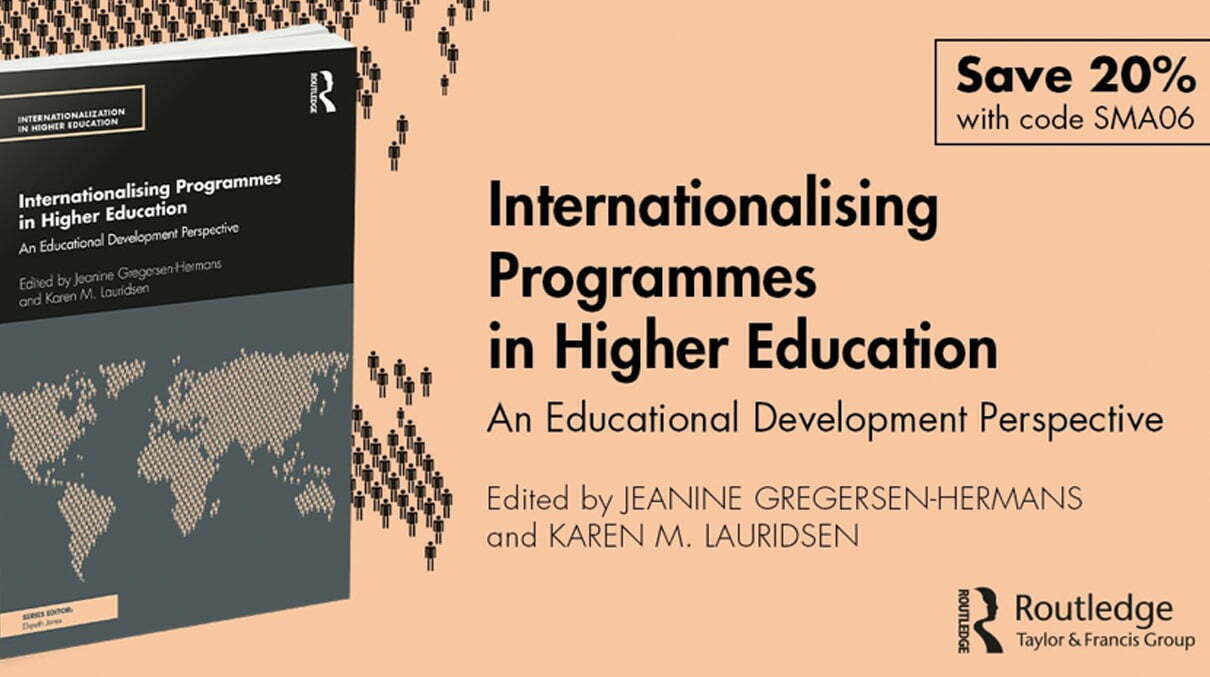
19 Jul The making of the book “Internationalising Programmes in Higher Education”
July 2021
June 2021, the birthday of my book ‘Internationalising Programmes in Higher Education: An Educational Development Perspective’ marked both and end and a new beginning. The beginning refers to opportunities for sharing the rich experiences and insights pertaining to higher education internationalisation laid down in this book through research, consultancy and training. The end indicates the completion of project that to me felt as a significant life experience.
The making of this book is a story of reading, writing and reflection, of creativity, continuous communication, critical friendship and sharing, and of more writing, revising, scrutinizing and debating. Some stats:
The making Involved
| Words | 90.000 |
| Chapters | 12 |
| Pages | 231 |
| References | 339 |
| Figures, tables, boxes | 33 |
| Contributors | 26 |
| Authors/editors | 2 |
| Series editor | 1 |
| Publisher contact persons | 5 |
The time span to complete the book took 19 months from January 2019 to June 2021. In that period we had three full time joint work weeks in Arhus, several joint contributor meetings back to back international conferences, and numerous writing sessions with co-authors and feedback sessions with contributors providing editorial support. Moreover, Karen and I on average held weekly editorial meetings in which we conceptualised ideas, debated texts, sections, sentences, and even words. Yes, every word in this book has been scrutinized more than once. We functioned as a team and truly were each other’s critical friends, benefitting from our Danish and Dutch characteristics of being direct and to the point. At certain moments, we already knew in advance which feedback to expect from the other. This helped to be sharp and clear about the arguments in favour or against, and contributed to the quality this book represents and the practical application to diverse higher education contexts.
A book not only requires expertise and writing capabilities, passion for the topic or adhering to a time line as the table below suggest.
Timeline
| Jan-19 | Developing the book proposal |
| Mar-19 | Peer review book proposal |
| Apr-19 | Contract Routledge |
| Jun-19 | Guidelines for editors |
| Jul-19 | Invitation to contributors |
| Jan-20 | Suggested deadline contributors |
| May-20 | Finalisation of first draft |
| Jun-20 | Feedback series editor |
| Oct-20 | Full manuscript to Routledge |
| Feb-21 | Notes and queries from the editor |
| Apr-21 | Proof reading T&F proofs |
| Jun-21 | Publication by Routledge |
The making of this book has been a project and involved a complex process, which demanded high levels of intercultural competence and negotiation skills to effectively work with peers from Europe, China, Hong Kong SAR, India, the US, Oman and Costa Rica. Moreover, these peers represented different academic backgrounds from business to engineering and from linguistics to agricultural sciences, holding various leadership positions in their institutions. It has been an exciting journey to make sense of all the varied and different approaches to internationalising programmes in higher education. It challenged us to create a coherent understanding and narrative that could be shared with a wider audience. The richness and variation in the contributions of these voices from across the world evidence that the societal context really is a key driver for local higher education institutions to make a meaningful contribution to society. I hope this book will function as resource for educators to take a global and intercultural perspective on their local context, and supports them to reflect on what this perspective implies for the internationalisation of their programmes and the attributes their graduates aspire to develop.
